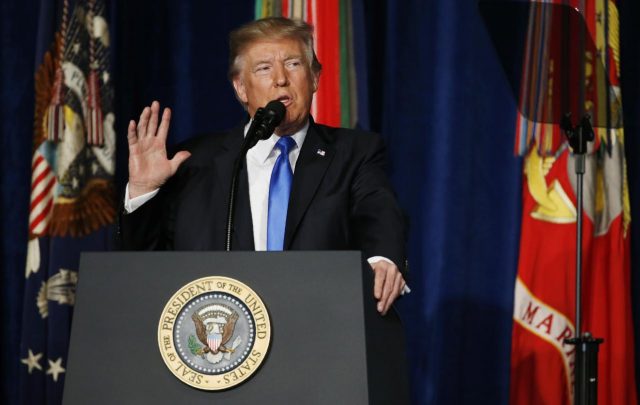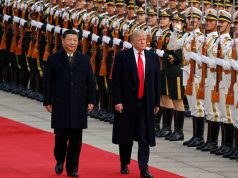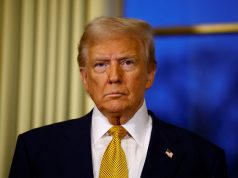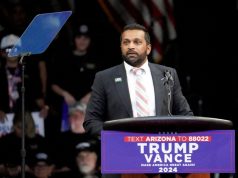
WASHINGTON — President Donald Trump opened the door on Monday night to an increase in U.S. troops in Afghanistan as part of a retooled strategy for the region, overcoming his own doubts about America’s longest war and vowing “a fight to win.”
Trump, in a prime-time televised address at a military base near Washington, said his new approach was aimed at preventing Afghanistan from becoming a safe haven for Islamist militants bent on attacking the United States.
Trump, who has repeatedly criticized the Afghanistan strategies of his predecessors, now inherits the same challenges, including a resurgent Taliban and a weak government in Kabul. He is laying the groundwork for greater U.S. involvement without a clear end in sight or providing specific benchmarks for success.
In a speech with few details, Trump did not specify how many more troops would be added, gave no timeline for ending the U.S. presence in Afghanistan, and put pressure on Pakistan, India and NATO allies to step up their own commitment.
But officials said he had signed off on Defense Secretary James Mattis’ plans to send about 4,000 more to add to the 8,400 now deployed in Afghanistan.
He warned U.S. support was not open-ended – “our support is not a blank check” – and insisted he would not engage in “nation-building,” a practice he has accused his predecessors of doing at huge cost.
“We are not nation-building. We are killing terrorists,” he said.
Trump laid out a tougher approach to U.S. policy toward Pakistan. Senior U.S. officials warned he could reduce security assistance for Pakistan unless the nuclear-armed nation cooperates more in preventing militants from using safe havens on its soil.
“We can no longer be silent about Pakistan’s safe havens,” Trump said. “Pakistan has much to gain from partnering with our effort in Afghanistan. It has much to lose by continuing to harbor terrorists.”
A Pakistani army spokesman said on Monday that Pakistan had taken action against all Islamist militants including the Haqqani network, which is allied to Afghan Taliban insurgents.
“There are no terrorist hideouts in Pakistan. We have operated against all terrorists, including (the) Haqqani network,” spokesman Major General Asif Ghafoor told a media briefing in Islamabad.
Trump expanded the U.S. military’s authority for American armed forces to target militant and criminal networks. He said that U.S. enemies in Afghanistan “need to know they have nowhere to hide – that no place is beyond the reach of American arms.”
“Our troops will fight to win,” he added.
Past skepticism
The speech came after a months-long review of U.S. policy in which he frequently tangled with his top advisers on the future of U.S. involvement in Afghanistan, where Taliban insurgents have been making territorial gains and 2,400 U.S. forces have lost their lives.
The Republican president overcame his own skepticism about the war that began in October 2001 after the Sept. 11 attacks on the United States. He said repeatedly on the campaign trail last year that the war was too costly in lives and money.
“My original instinct was to pull out,” he said in his speech, but added he was convinced by his national security advisers to strengthen the U.S. ability to prevent the Taliban from ousting the U.S.-backed government in Kabul.
Trump’s speech came as the president tries to rebound after he was engulfed in controversy for saying both sides were to blame for violence between white supremacists and counter-protesters in Charlottesville, Virginia, earlier this month.
In an allusion to the Charlottesville uproar, Trump said: “We cannot remain a force for peace in the world if we are not at peace with each other.”
Trump also said the United States wanted India to help more with Afghanistan, especially in the areas of economic assistance and development.
He made clear his patience had limits in support of the Afghanistan government, saying Kabul needed to increase its cooperation in order to justify a continued American commitment.









